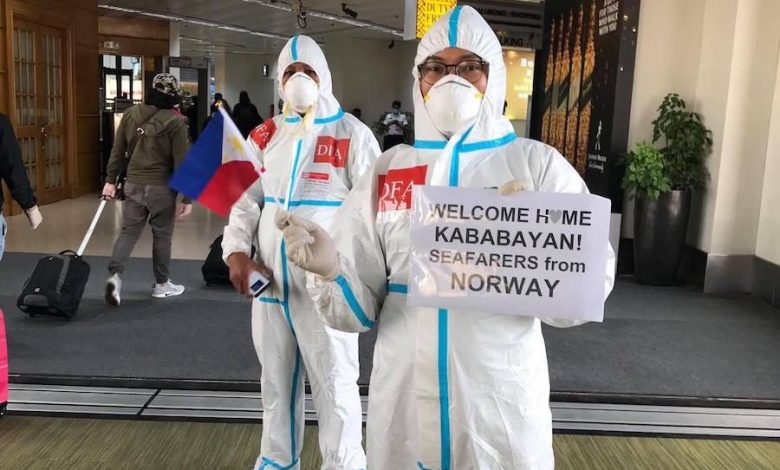Manila creates dedicated ‘green lane’ for seafarers

The government in the Philippines, the world’s top crewing hub, is creating a green lane for seafarers to finally speed up crew repatriation during the coronavirus pandemic.
The joint circular for the Philippine Green Lane was signed by senior government officials in Manila today.
The green lane concept intends to provide safe and swift disembarkation and crew change during the Covid-19 pandemic as well as to prevent the spread of Covid-19 for both Filipino and foreign seafarers whether inbound, outbound or transiting.
Foreign affairs secretary Teodoro Locsin said the circular answers the call of the International Maritime Organization (IMO) to put in place a framework for safe crew changes for thousands of sailors who need to leave their ships.
“We agree with the International Maritime Organization that the current situation is unsustainable for the safety and well-being of the ship crew and the safe operation of maritime trade,” he said.
“We need to address the situation of the world’s seafarers without whom there would be no shipping and who ensure the maintenance of global supply chains,” he added.
The joint circular serves as a guideline and sets process flows for seafarers, licensed manning agencies, shipping companies, airlines and other entities involved in facilitating crew change and repatriation of mariners during the pandemic.
The idea of a local and foreign seafarer green lane was first advocated by the Joint Manning Group, an umbrella of all the local manning associations, back in April.
More flights are calling Manila in recent days sparking hope that Filipino crews can finally get home. The Philippines, which supplies more seafarers to the global merchant fleet than anyone else, has had one of the strictest and longest lockdowns during the coronavirus epidemic.
A number of Japanese-controlled ships have been diverting to the Philippines recently to carry out crew changes. Filipinos make up close to three out of four people onboard Japanese ships.
A 12-step set of protocols for crew change drawn up by the industry and published by the IMO is yet to be adopted by most governments and most have yet to recognise seafarers as key workers. The UK is set to host an international summit to discuss how to fix the crew change crunch on July 9.

Unlike the Japanese, at Europe shipmanagers prefer to whine at a summit.
Congratulations Philippines.